LepraNews










As we look back at the impact of our work in preparation for our annual review, we naturally reflect on our collective achievements over the past year. Underneath the statistics and data however, lies countless stories of individuals who show remarkable resilience and a determination to recover, overcome and thrive.
I recently visited Lepra India, and travelled to the remote areas of Madhya Pradesh state. Travelling by road in India really gives you a sense of its sheer size and population. Madhya Pradesh state alone is bigger than the UK and – with 70 million people – has more people. And that’s just one of thirty or so states in the country.
Madhya Pradesh records over 8,000 cases of leprosy every year, with some areas having high concentrations of cases. We visited a village in the remote southern district of Barwani, which has the highest leprosy prevalence rate in the whole state.
It was a blazing hot day at the end of the dry season. The scrub and landscape were scorched brown, parched like tinder. We got to the point where the car couldn’t go any further down the narrow, rocky dirt road. So we all got out to walk the last mile, to visit a family whose lives had been profoundly touched by leprosy.
We met with a father, who looked after his four children alone, with only minimal income from his farming work. He was diagnosed with leprosy 10 years ago, took his drug therapy cure at the time, but still lived with the lifelong impacts. He had a stubborn ulcer on the sole of his foot, which wasn’t getting any better, and gave him mobility problems.
Lepra is a non-governmental organisation (NGO), and has been working to find and assist people affected by leprosy since 1924.
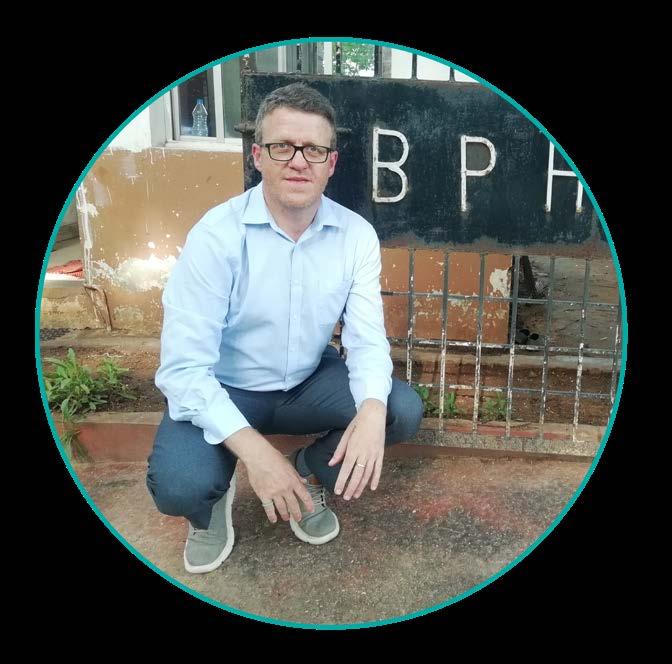
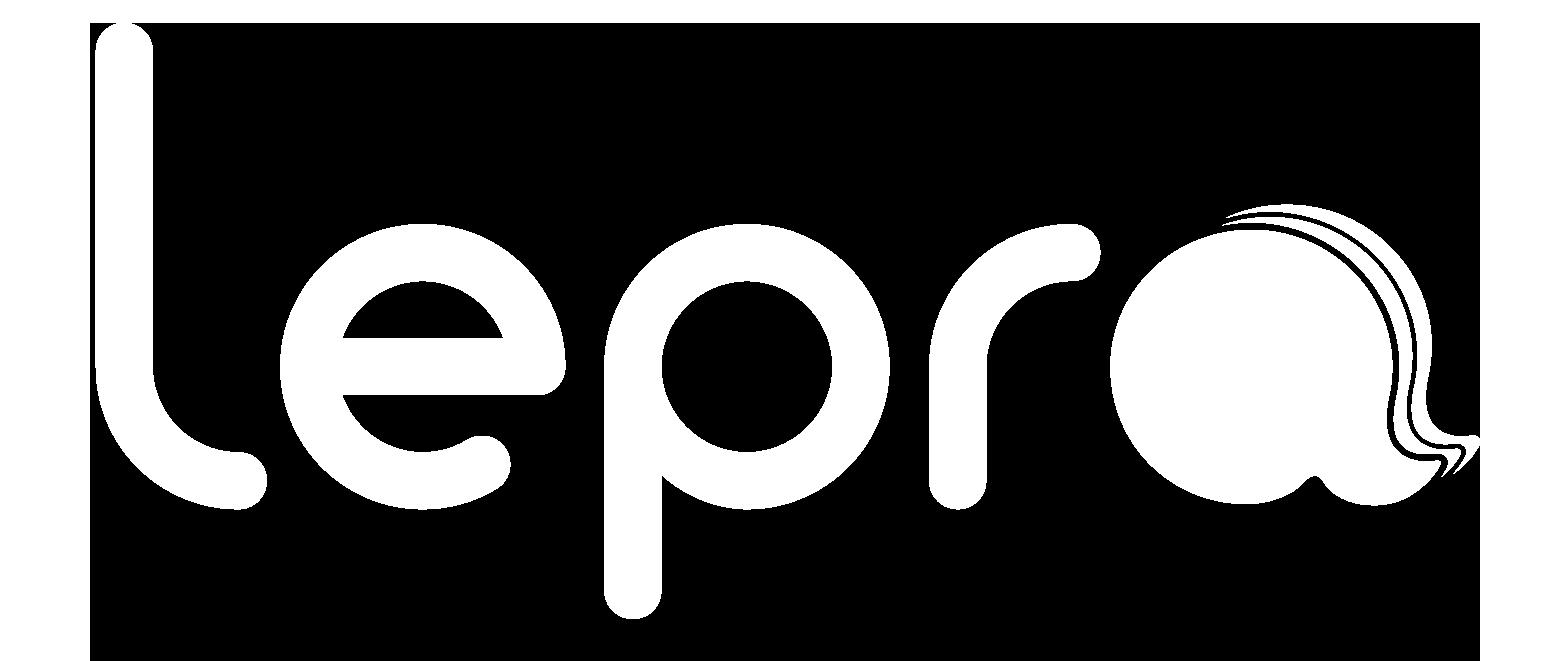

Since that time, Lepra has had two defining characteristics. Firstly, we are secular. A positive decision to favour no one and everyone. Secondly, we prioritise being evidence-led.
Leprosy is a communicable disease, caused by bacterium, which affects the skin and peripheral nerves
Recently, three of his children had also been diagnosed with leprosy – one son, and two daughters. One of the daughters, who was around 20 years old, had a two-month old baby in her arms. Since she was diagnosed just a few weeks before, her husband had left her. He believed it must be some kind of curse.
The family welcomed us with open arms and we talked together at length. Our team tended to their physical concerns and counselled them at length about their traumatic situation.
Here was this young lady, with her newborn baby, who has now been abandoned and is trying to pick up her life, whilst also coming to terms with her positive diagnosis of leprosy, and that of her siblings. She will be coming to terms with it for the rest of her life.
When we left, as we walked back down the dusty path towards our car, I spoke with Prasant, the CEO of Lepra in India. We had both been profoundly touched by the family, and the circumstances that they have suddenly found themselves in. The experience showed us again just how much a positive diagnosis of leprosy can impact your life, and that of a whole family – and the overwhelming prejudice that people face as a result.
You will read in this issue of Lepra News, how our approach is helping to enabling endemic communities to create new, sustainable support mechanisms at the grassroots level, which supports vulnerable people through the physical, psychological, social and financial impact of a diagnosis.
Visit www.lepra.org.uk/real-life-stories to hear myself and Prasant discussing this emotional case and to find out more about the real people you have helped to support.
of people. It can result in severe disability, prejudice and even cause blindness. Leprosy and LF remain two of the least understood and most widely ignored diseases in the world. Millions of people are affected, with numbers continuing to rise. If left undiagnosed or untreated, leprosy and LF can cause life changing disabilities.
Leprosy can incubate in a human anywhere from 6 months to 20 years. As a result, it is often difficult to diagnose the disease until it has
already caused severe damage. Working in India and Bangladesh, we find, diagnose, treat and rehabilitate people with leprosy. Specialists diagnose leprosy using skin test patch anaesthesia, skin smears and non-invasive sensory investigation.
We also work tirelessly to fight the prejudice and discrimination they face in their daily lives.
Our vision is a world free from prejudice and disability due to leprosy.
experiences of our friends and supporters over the decades.
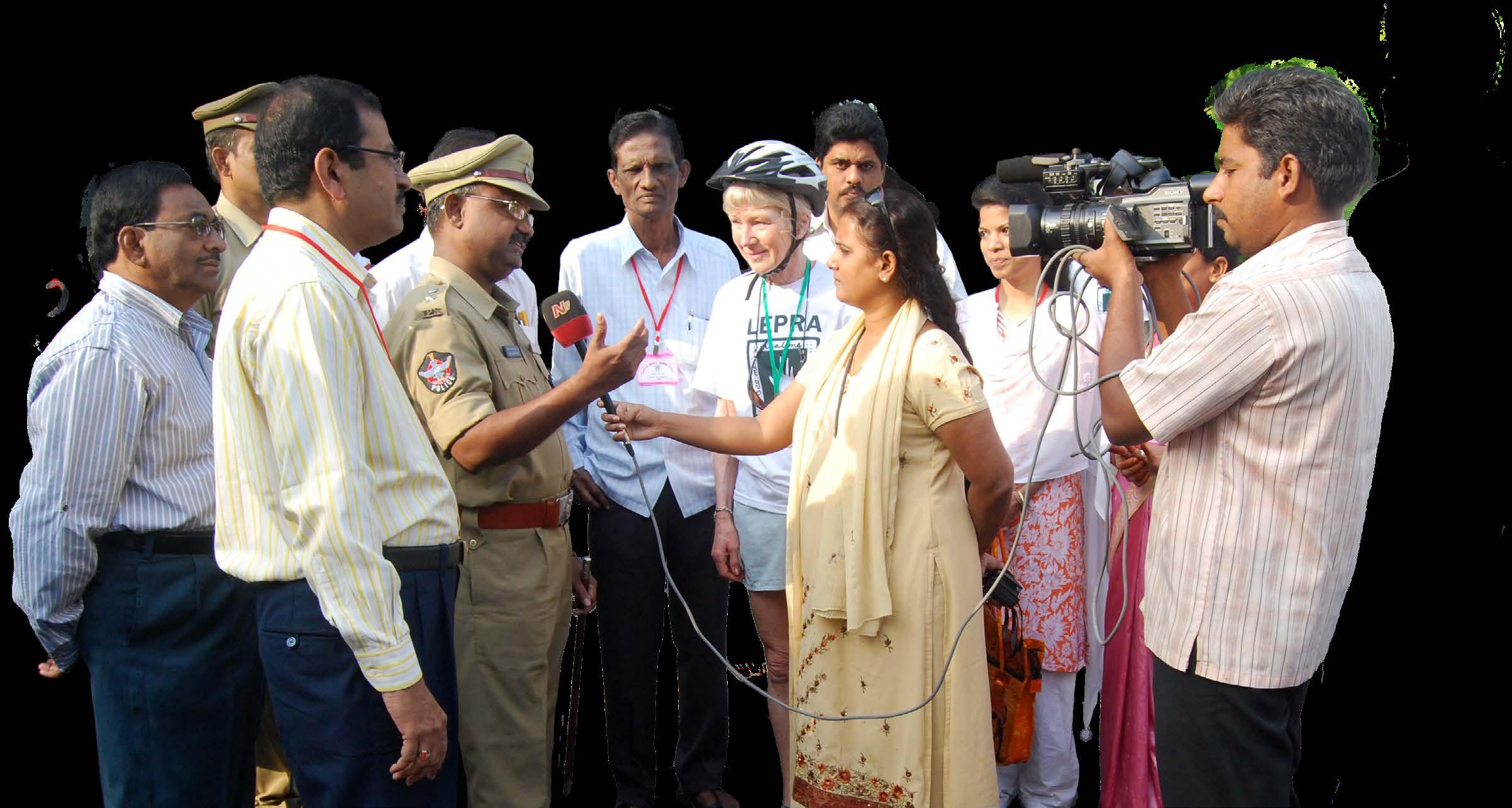
Over the last century, we have seen some remarkable innovations in science and medicine, which have aided the development of new treatments and led to a greater understanding of complex diseases such as leprosy.
We have also made an important contribution to changing the culture around treatment and support within the community, developing innovative programmes which promote a greater voice for people affected, and better access for people who are socially and geographically isolated.
Throughout our long history, Lepra has found the support of a small but loyal following of supporters, whose unique contribution over the decades, has helped to sustain our vital work, in some of the most endemic areas of the world.
With your kindness, empathy and generosity, we have prevented leprosy from becoming a forgotten disease and we have helped to change the lives of hundreds of thousands of neglected people.
To recognise the incredible dedication of our amazing supporters in the UK, and further afield, we are creating a record of our history, in the form of an online exhibition, detailing the fundraising
In July, we heard from dedicated supporters Sandra Horne and David Bousfield, who in the late 1990s and 2000s, took part in a series of fundraising bike rides across Brazil, Malawi, Madagascar, and India.
The cycle teams helped raise tens of thousands of pounds for Lepra, but their incredible efforts also helped to shine a light on this neglected disease.
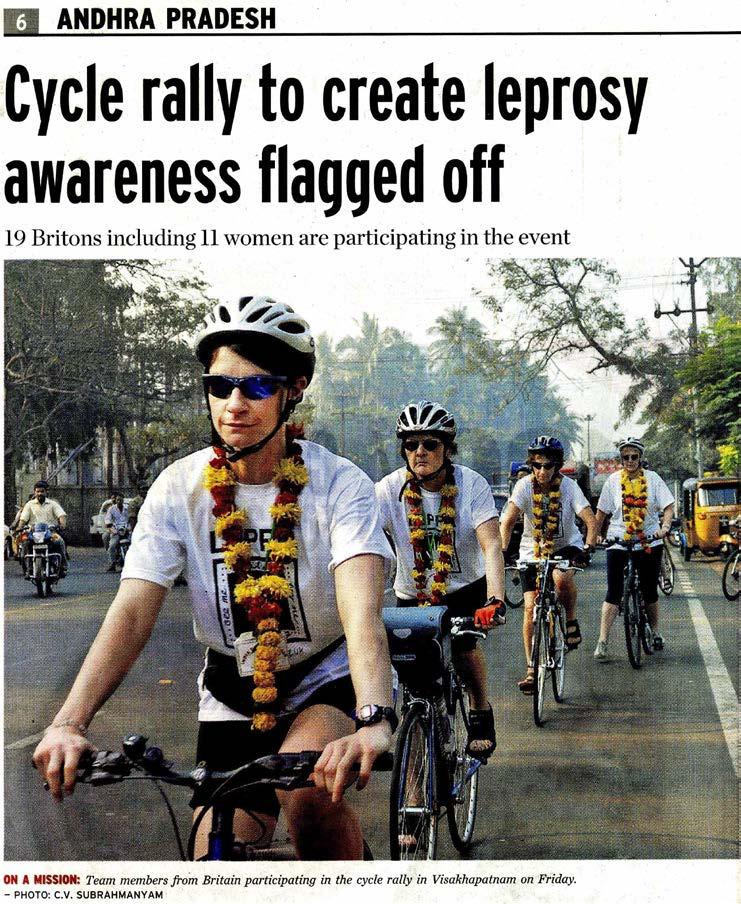
Their stories, and the stories of countless others, continue to inspire us all, as we reach our centenary milestone. If you too have a story to tell, about your support for this important cause, we would love to hear from you
We would like to host a range of your stories, photographs and videos, which will help to build a social history of our organisation.
Why did you choose to support Lepra? What are your memories of fundraising for us? What are your hopes for the future of our cause? Please do let us know: comms@lepra.org.uk
To receive email updates about our centenary, please visit: www.lepra.org.uk/events


As we look forward to our centenary in 2024, it is only natural for us to reflect on the incredible achievements of the last one hundred years.

In the spring of 2023, Lepra’s technical advisor - Emeritus Professor Diana Lockwood, travelled to Bangladesh with documentary photographer Tom Bradley to continue their thought-provoking series of portraits and real-life stories.
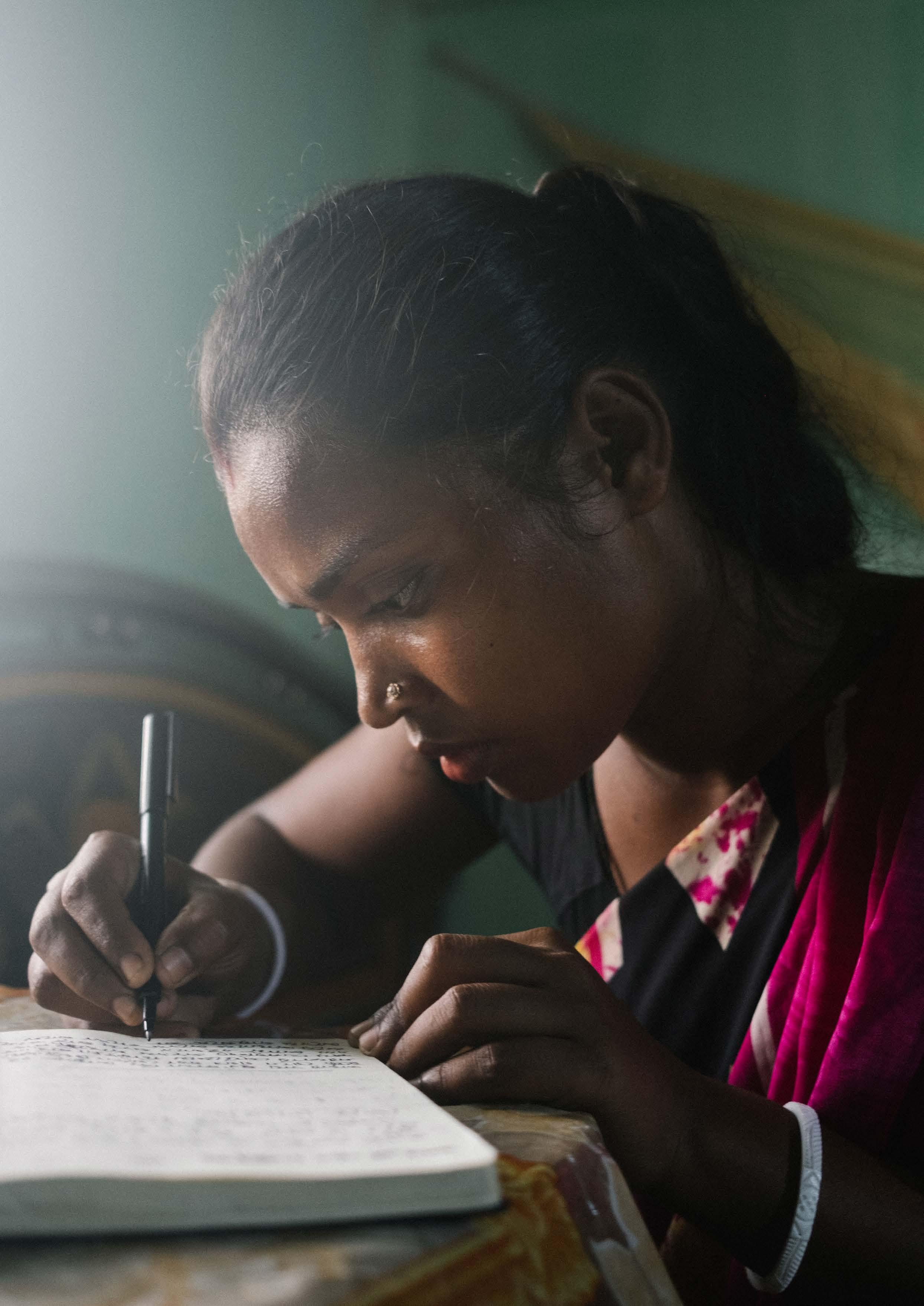
With the aim of challenging the long-held myths and misunderstandings of leprosy, the intimate photographs offer a glimpse into the lives of twenty-two people affected by the disease.
Their stories detail the difficulties they have faced through diagnosis, treatment and recovery, but also celebrates their remarkable personal achievements in the face of unimaginable adversity
In July, Professor Lockwood spoke to us about the project, and her experience of meeting the people Lepra have helped support in Bangladesh.
Visit www.lepra.org.uk/events to hear our interview with Professor Lockwood and to register your interest in seeing the exhibition near you in 2024.


As a person-centred organisation, working holistically to support individuals in their own community, our work goes far beyond the physical recovery of neglected tropical diseases (NTDs) such as leprosy and lymphatic filariasis.
Much of our work focuses on the emotional recovery, which is increasingly recognised as a vital component of programme design, particularly for NTDs, which attract unequally harmful prejudice, overwhelmingly affecting the most vulnerable and already marginalised members of society.
Many people are aware of psychologist Abraham Maslow’s ‘Hierarchy of Need’, a theory of psychological health, proposed in 1954. In essence, for an individual to realise and then fulfil their potential, they must first have their most fundamental needs met. Lepra’s holistic approach allows people affected by NTDs to build a stronger foundation following diagnosis and recovery, helping individuals to achieve personal growth and develop a stronger sense of self-esteem.
Following diagnosis, many people will be forced into unemployment, losing vital income to support their family.
This also has a significant impact on people’s confidence and self-esteem, which can increasingly contribute toward poor mental health
Over time, our network of local groups and federations have begun to develop their own grassroots strategies, to allow their members to generate new income through creative and entrepreneurial initiatives such as the ‘Pabna Federation of People affected by Leprosy and LF’ in Bangladesh.
“I am saving to help my daughter gain an education. If I can earn more, my daughter can study to a higher level and be successful in life.”
There is limited financial support available from the government for people with a disability, so finding ways to improve income can help enormously. The Federation’s new pilot project is giving women the funding and tools to develop their own selfsustaining, creative enterprises, women like Jeba, and Dilruba
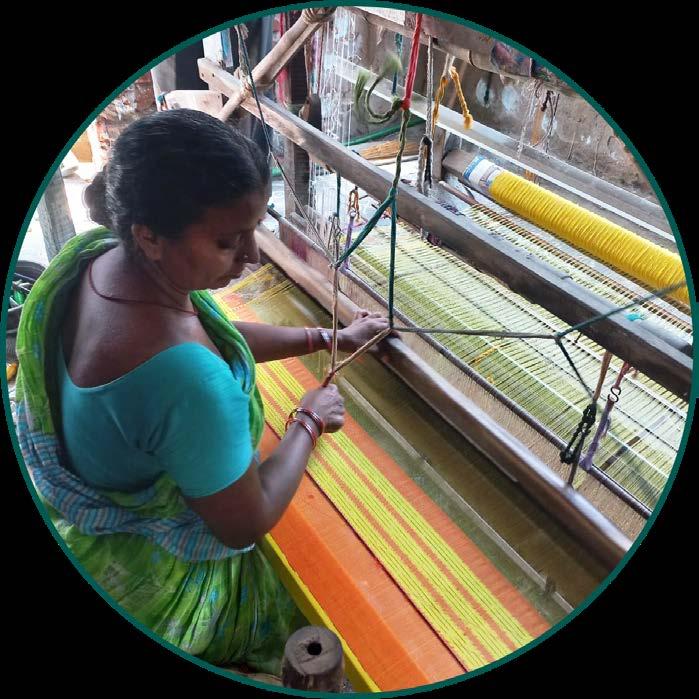
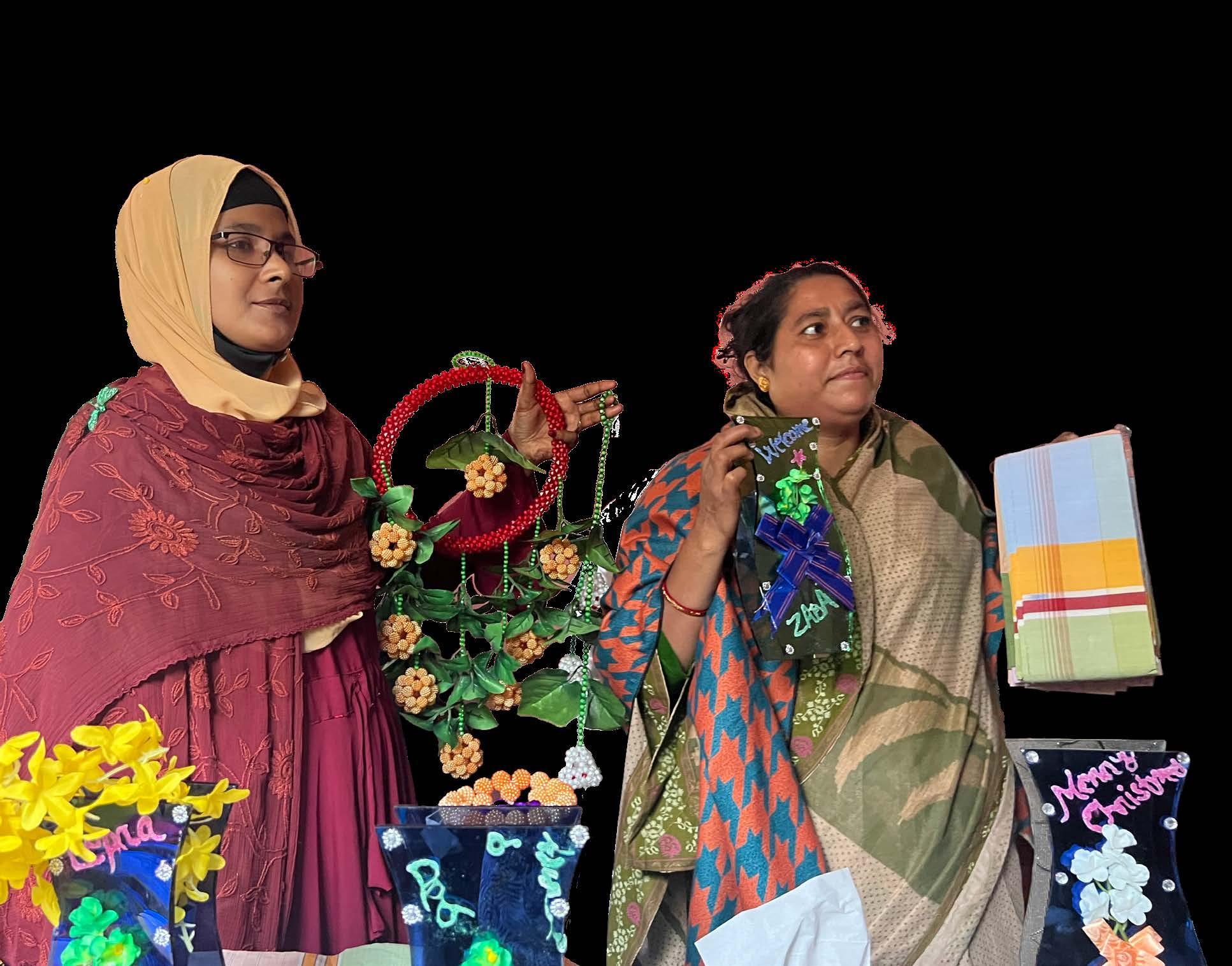
Lepra’s concept of community ‘selfsupport groups’ (SSGs), provides a sustainable structure of support, which is vital for people’s physical, emotional and social recovery.
To find creative outlets, such as making beautiful fabric and garments and intricate home decorations, not only proves additional income, but also a greater sense of confidence and self-esteem.
Despite only having the use of one hand, Dilruba’s extraordinary resilience, imagination and dexterity, is helping her to regain her financial independence and take control of her situation. She has also become the Secretary of Pabna District Federation, helping to support even more people following a diagnosis.
To read about more innovative projects and the people you have helped to support, please visit:
www.lepra.org.uk
Our programmes continue to support the most vulnerable Our wide range of services provide innovative, holistic


From detection, disease and complications management, self-care and rehabilitation, disability and morbidity management, to social, psychological, and employment support and advocacy. Our evidence led approach represents one hundred years of experience in working with neglected tropical diseases.
In India, the number of people affected by leprosy directly reached through our diagnosis, treatment, and care is around 26,084 and the number of people affected by LF is around 8,385 in 2022-2023.
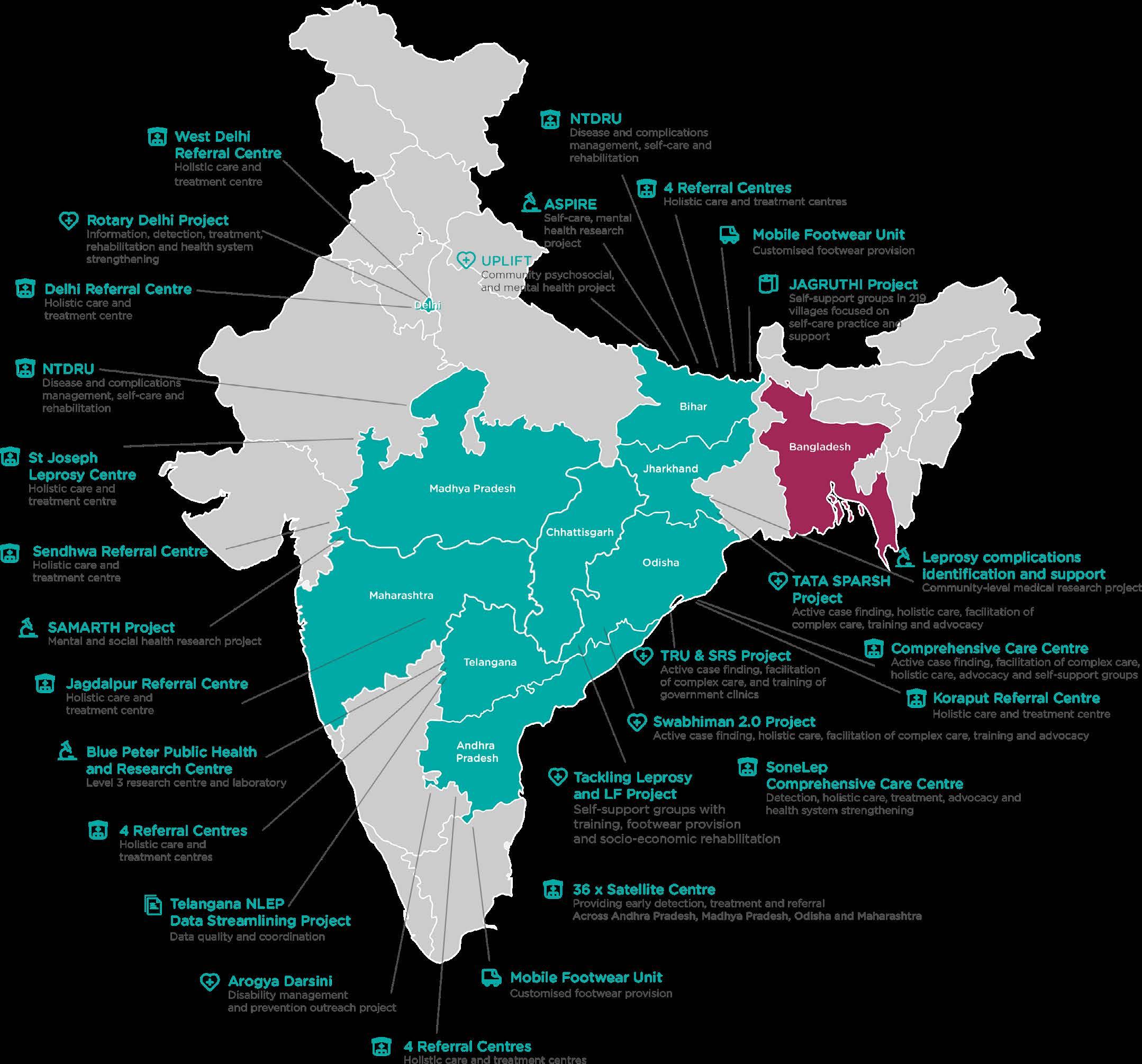
As a part of our health system strengthening goal, 532 government healthcare staff were trained through different projects and over 12,835 health workers, doctors, and ASHAs (Accredited Social Health Activists) received training from Lepra. All of these dedicated staff and volunteers made sure 37,958 people affected received training to help them manage the physical effects of leprosy
In 2022, Lepra piloted its first mental health-focused operational research project ‘Samarth’ in Madhya Pradesh that formed 98 functional self-support groups (SSGs). People affected by leprosy and LF were provided with 153 pairs of protective footwear and ongoing therapeutic counselling
Samarth continues our holistic, person-centred approach, providing comprehensive care and support for physical symptoms as well as vital care for people’s emotional health
Furthermore, around 642 hydrocelectomy surgeries for LF-affected men and 284 reconstructive surgeries were performed that improved the functionality and mobility of people affected.
Finally, in 2023 we embarked on a new project called UPLIFT, an operational research project in Bangladesh, India, & Ethiopia.
Bangladesh
communities, in endemic regions of India and Bangladesh. holistic care with the individual’s needs at our core.
In Bangladesh, Lepra supported five projects throughout 19 districts from 2022 to 2023.
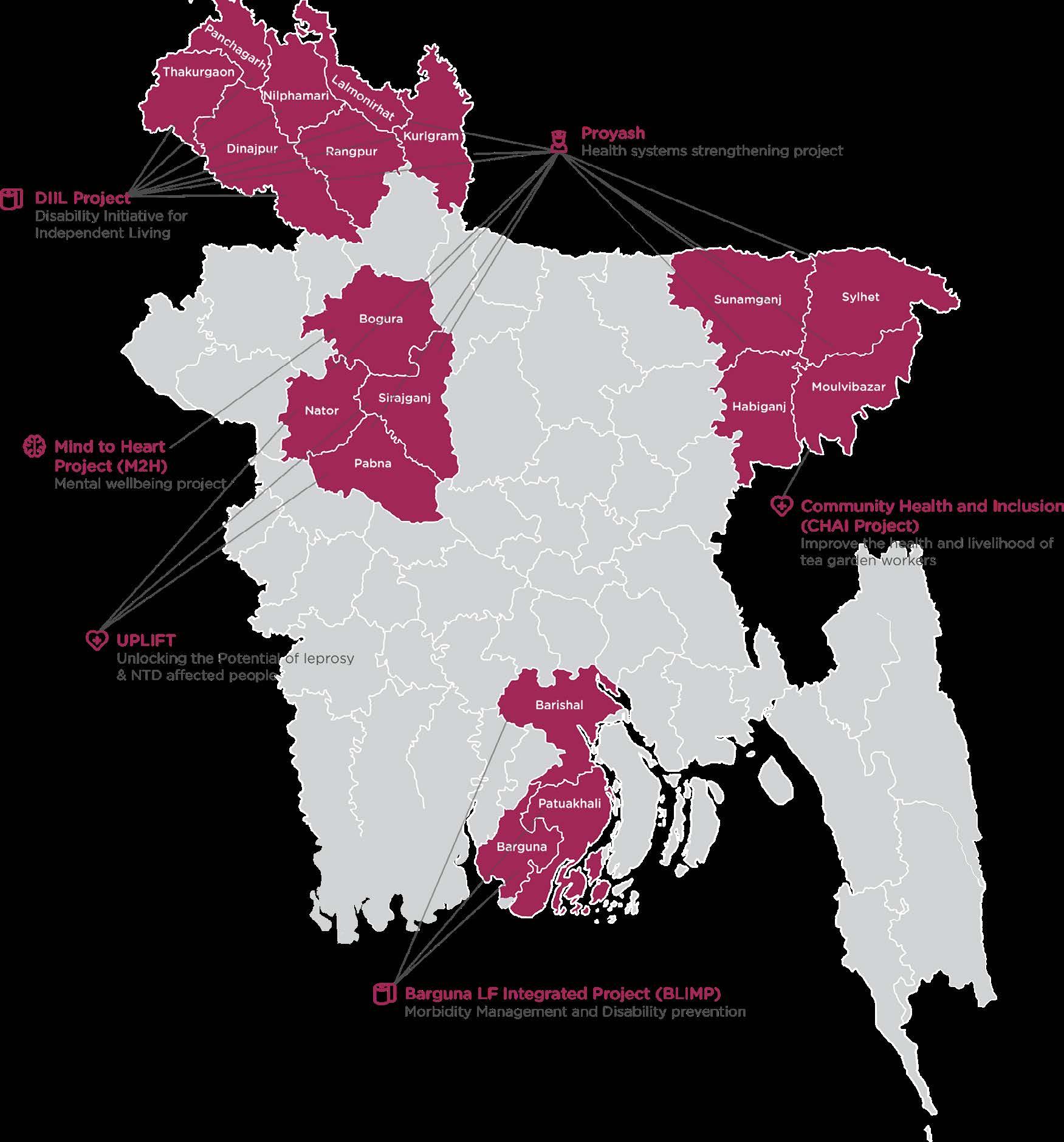
Proyash, our health system strengthening project, entered its 10th year in 2022. The project continued to encourage government ownership of leprosy healthcare services while improving the technical skills of healthcare staff at district and sub-district levels.
Our teams were able to improve the skills of over 1000 healthcare personnel who received training on early diagnosis, treatment, and the management leprosy symptoms and its consequences as a result of this initiative.
Furthermore, this year, the programme piloted two initiatives in two new operating environments: the Tea Gardens in the country’s east and three high-endemic lymphatic filariasis (LF) regions in the south.
These new programmes offered 2,066 people affected by leprosy and LF with self-care practise training and the tools needed to enhance illness management and avoid further disability.
Another highlight was the participation in November of three people with lived experience of leprosy in a People’s Forum in Hyderabad (India), where they presented their personal experiences, aspirations, and demands on an international stage as part of the 2022 International Leprosy Conference.
Finally, in the first two months of 2023, two new projects were launched:
Mind to Heart, a mental health support project that provides professional structured counselling to people affected, and UPLIFT, an operational research project, a multi-country project which seeks to develop a comprehensive community-based group model, in conjunction with people affected by leprosy and other experts.

If successful, the project design model could be applied in other contexts and to other NTDs worldwide.
A thank you to all of our amazing partners, supporters, donors, volunteers, ambassadors, trustees and staff
To find out more about Lepra’s work in India and Bangladesh, and to receive news updates, please visit:
www.lepra.org.uk/what-we-do

In 2022, Jimmy had the pleasure of meeting Mr Shaik Musthafa, a 40 years old father of three children from Andra Pradesh, India.
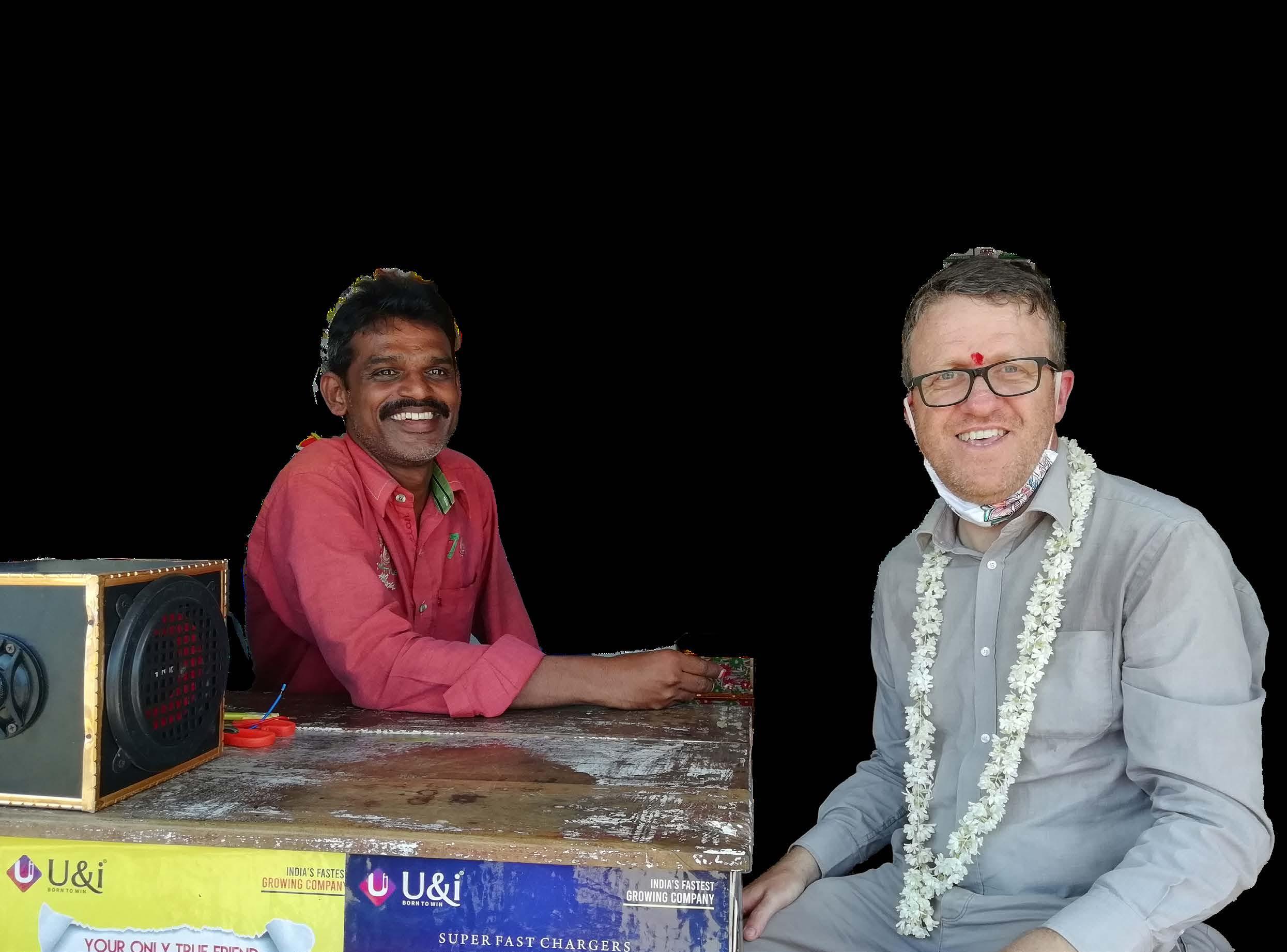
In 2018, Mr Musthafa started to notice pain, and problems moving his left hand. On the advice of a local medic, he made contact with Lepra’s community team, who carried out a Nerve Function Assessment (NFA).
Suspecting that he may be experiencing symptoms associated with leprosy, the team referred him to the local Primary Health Centre (PHC) for formal diagnosis and medication.
The health centre staff conducted a skin biopsy and Mr Musthafa was diagnosed with multibacillary (MB) leprosy. He was started on a 12-month course of multidrug therapy (MDT).
During follow-up visits, it was discovered that despite MDT treatment, his hand was showing significant nerve damage, which would lead to permanent disability without further intervention.

After the surgery, Lepra provided post-operative physiotherapy exercises to aid his successful recovery
As a manual labourer, he was however left unable to continue with such physically demanding work. So during his recovery, Mr Musthafa looked for new opportunities to help him support his family.
With Lepra’s help, Mr Musthafa was able to secure a small investment through the socio-economic rehabilitation fund, to allow him to start his own small business.
With this support, he was able to purchase the goods and products he needed from a wholesale market, to start a small electrical shop in Jaggaiahpeta, selling a range of popular items to his local community. He is already making enough money to support his family and his children are receiving a good education.
When asked if he had faced any discrimination since opening his shop, Mr Musthafa said:
“Oh, no! This is just a small disease, like any other disease that you can be cured”

With your kindness and support, Lepra’s programmes in India and Bangladesh, have continued to reach thousands of the world’s forgotten people.
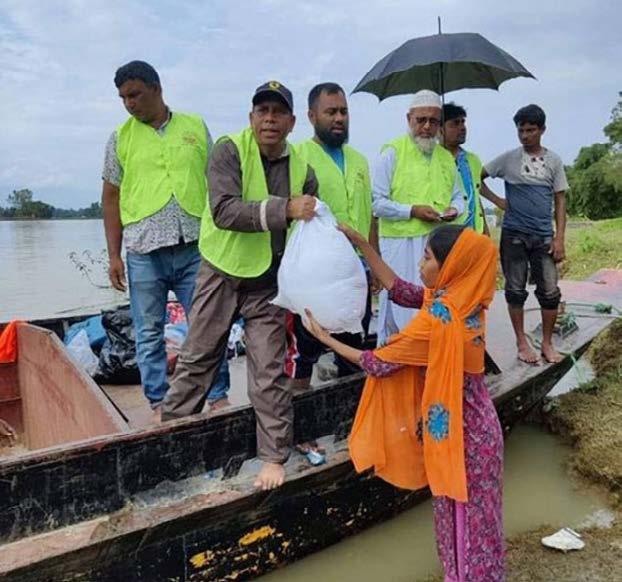
9,842 We diagnosed and provided care for 9,842 people affected by LF.
1,746,916
Together we screened 1,746,916 people for leprosy.
1,194
We helped 1,194 people affected by leprosy or LF access government support.

26,693
40,024
2,437,979
We reached a total of 2,437,979 people through health education and events related to leprosy and LF
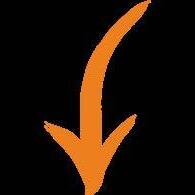

We trained 40,024 people in self-care within their own community.
19,591
We issued 19,591 pairs of protective sandals.
547
547 people were given nutritional support during humanitarian crisis.
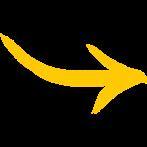
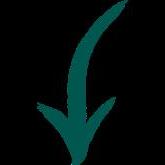
1,551
We trained 1,551 medical officers and associated clinical staff.
903
We supported 903 self-support groups.
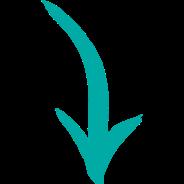
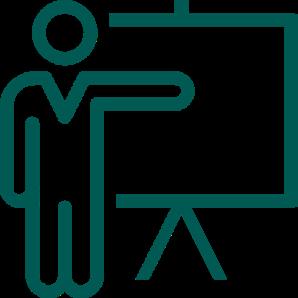
We diagnosed and provided care for 26,693 people affected by leprosy.
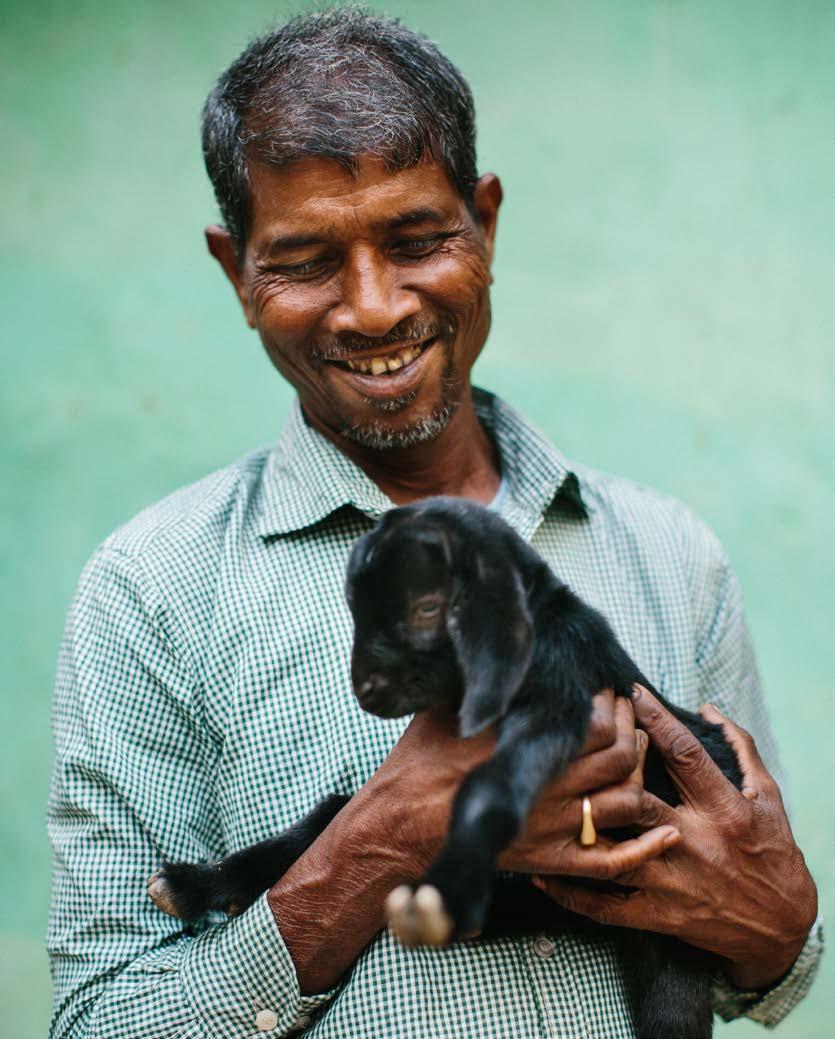
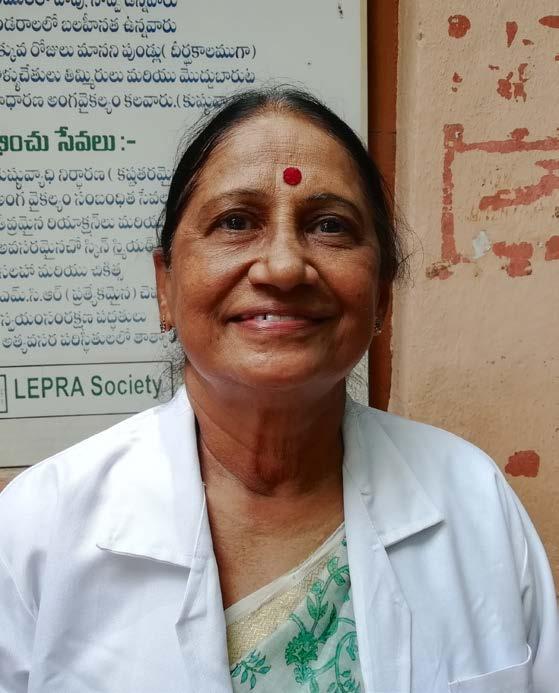
642
We facilitated 642 hydrocele operations.
36,535
We reached 36,535 people, providing diagnosis, treatment and holistic care.

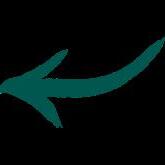

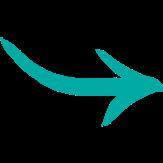

284
284 people affected by leprosy received reconstructive surgery to restore the movement and appearance of their hands and feet, reducing prejudice and rebuilding their self-esteem.
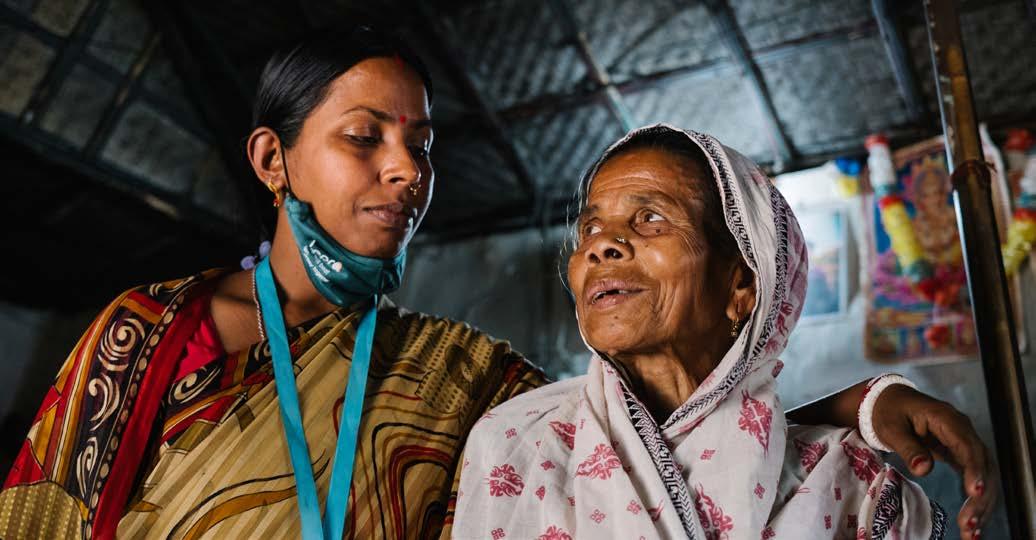
11,424
11,424 people took part in meetings to advocate for their rights.
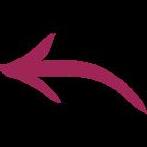
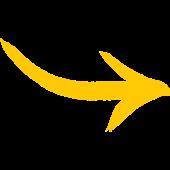

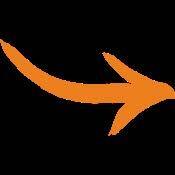

12,835
We trained 12,835 front line health workers.
Photo by Tom Bradley Photo by Tom Bradley Photo by Tom Bradley
I joined Lepra in October 1981, firstly as the Director’s Secretary, then moving onto being the Research and Projects Officer, and finally the Information Officer. In this role I also took on the task of historian and archivist, as well as being the Assistant Editor for our prestigious medical journal Leprosy Review.
I have always had a passion for history, and Lepra has one of the best as, if it wasn’t for us, a cure for leprosy would have been set back by decades, as other organisations sought only to look after those affected by it, not seek a cure for the disease itself.
Our roots go back to India when, at an International Conference in Calcutta, in 1920 on ‘The Leprosy Problem’ organised by two of our founding members - Sir Leonard Rogers and Rev. Frank Oldrieve, in order to learn the extent of the spread of the disease. Sir Leonard had earlier been approached by the Director of the Culion Leprosy Settlement in the Philippines, to use his renowned medical skills (he was a member of the Indian Medical Service), to find a cure
The only known remedy at that time, was the folklore ‘cure’ of the fruits of the chaulmoogra tree (Hynocarpus Wigitania). However, the fruits were bitter and made the patient physically sick, but Sir Leonard worked tirelessly on this and made a ‘soap’ out of the fruits which could be injected intravenously. Although not an instant cure, it proved that the disease could be slowed
On his return to England, Sir Leonard was approached by Rev. Frank Oldrieve, who had been inspired by the meeting in Calcutta, and the work with chaulmoogra, to form a new organisation which would seek to find a cure for the disease. An old India friend, Sir Frank Carter, put up the money to start this new venture. So, at a meeting at the India Office, presided over by Lord Chelmsford, this new association, the ‘British Empire Leprosy Relief Association’, was constituted on 12th July 1923.
The reason the association wasn’t officially begun until 31st January 1924, was because the Prime Minister of the time, Bonar Law, died, and his government collapsed. It was felt that the official start should be delayed until a new stable government had been formed.
I was fascinated doing the interviews in how much of my knowledge of Lepra’s history flooded back –how in 1931 at the International Congress in Manilla, we were recognised as ‘the first leprosy prevention organisation,’ and that in 1948, due to our intervention, the derogatory 5 letter ‘L’ word (often used to describe someone affected by the disease), was banned at another congress in Havana, and also that we were instrumental in ensuring that leprosy became a notifiable disease in the UK.
There were so many firsts with Lepra: Speaking out against segregation, spearheading drug and vaccine trials, introducing drug delivery systems that ran like a bus timetable – too many more to include here, but always, as now, the person affected by the disease, came first.
Having been associated with Lepra for 40 years now, I am continuing my research into what we have achieved and will achieve through our many committed supporters. We have a history to be proud of, and I am delighted to still be able to help.

To hear the interview in full, and to hear Irene speak about the UK’s own history of leprosy, visit www.lepra.org.uk/news
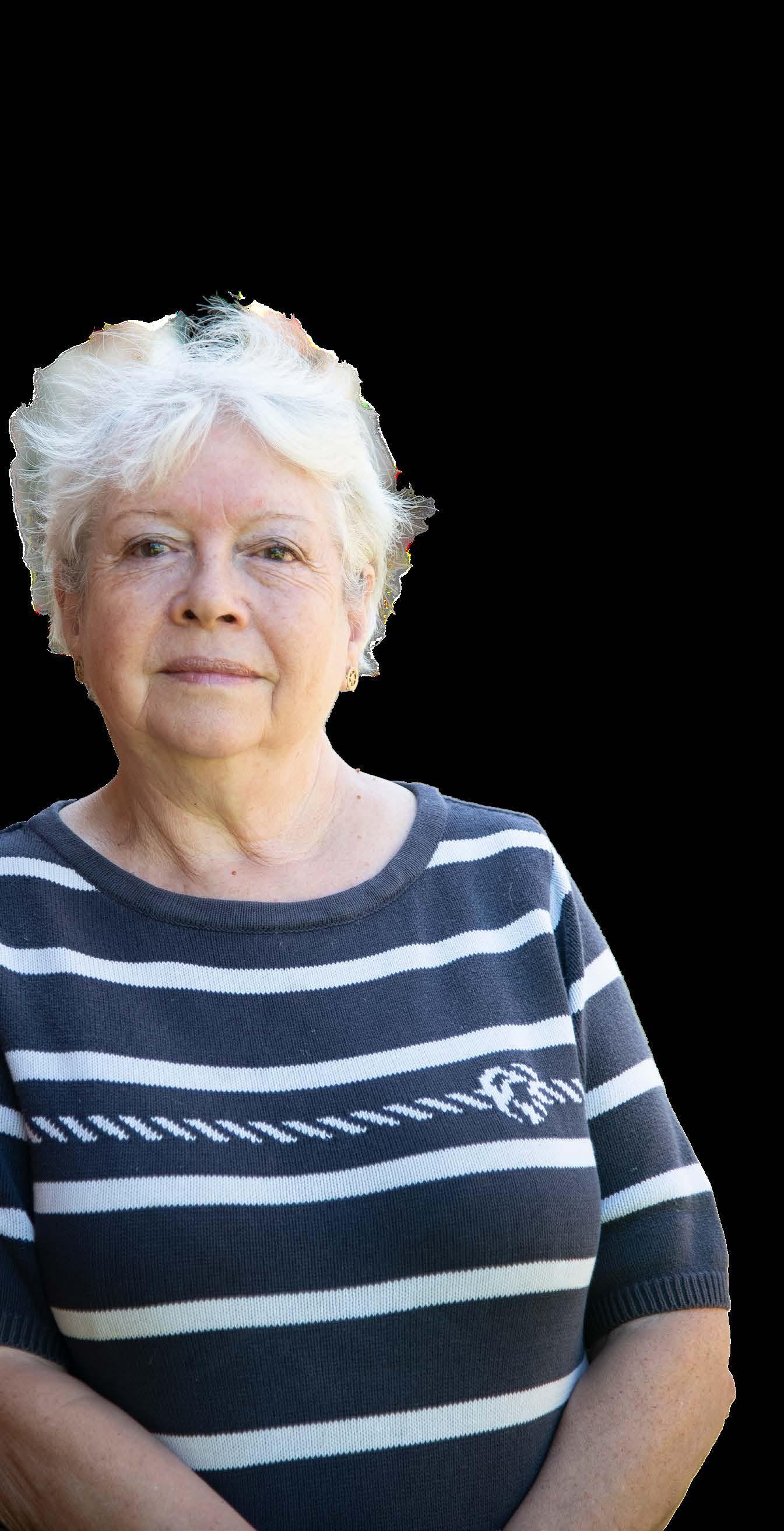
“When I was asked if I’d join Jimmy in some radio interviews about Lepra’s upcoming centenary, I was rather taken aback. After all, I have been retired from the charity for nearly five years now.”
For Lepra’s centenary, Tom Barton, Lepra’s Challenge Ambassador, is taking on an incredible new challenge to raise vital funds for Lepra!
As you may remember, in 2021, Tom took on a challenge of a lifetime - to run a breathtaking 12 marathons for Lepra, and raised £3,000 whilst doing so.
In June 2024, Tom is taking on a new personal challenge - a 24 hour running event called Endure24 Reading. The event is a gruelling lapped race against the clock, and Tom aims to run an astounding 100 miles during the event, to help mark Lepra’s centenary.
As Lepra’s Challenge Ambassador, Tom is really setting a high bar for future challenges. Jimmy Innes, Lepra’s Chief Executive said:
“Having Tom lead by example is a great way to help Lepra’s Marathon runners push themselves out of their comfort zone and I know they appreciate his support in their training”.
We’ll let you know how Tom gets on and we are sure you will be supporting him all the way!
If you feel inspired by Tom’s incredible efforts, and would like to challenge yourself in 2024, why not apply to run the London Marathon for Lepra. We still have a few places available.
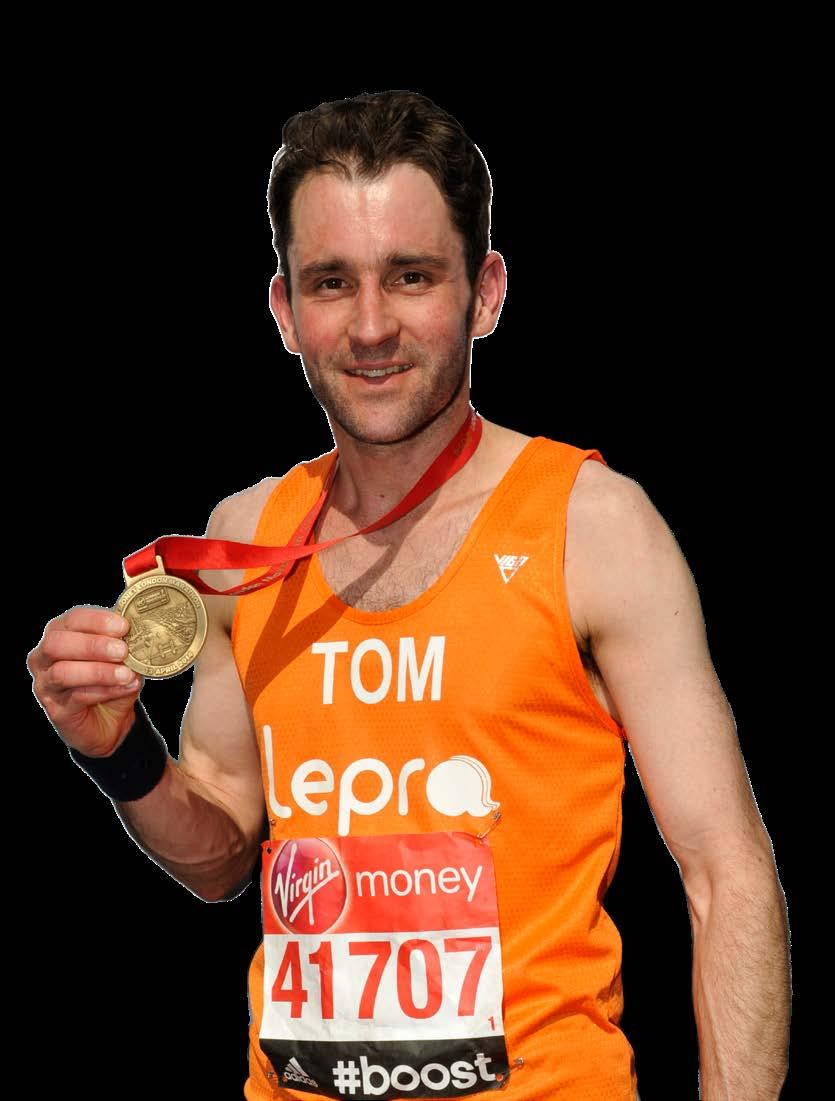
To find out more, please visit:
www.lepra.org.uk/events
With Tom helping you along the way, Lepra can offer you an amazing all round experience.

There are many ways you can get involved in fundraising for Lepra, and our centenary in 2024 can add an extra dimension to your events and activities.
Over the years, our amazing supporters have found so many creative and fun ways to fundraise, and they don’t have to be physically demanding. Even a sponsored silence, or hosting a ‘life-changing tea’ can make a huge difference.
Last year, we heard from a young fundraiser from Devon, who had been inspired to support Lepra after reading ‘Maria’s Island’ by Victoria Hislop.

Chloe and her big sister Martha, who took on a sponsored litter pick in their local area in Torbay raising an impressive £165, whilst also helping to improve their environment.
This year Chloe took on another amazing challenge for Lepra, by walking 25 miles along the South
West Coast and around Portwrinkle and Looe in Cornwall, and raising a fantastic £220!
Her mother Sarah said:

“Chloe was very moved reading the story, she has read it several times and was determined to keep supporting Lepra.”.
We interviewed Chloe this summer, to find out more about her fundraising efforts, and why Maria’s Island moved her to act at such a young age. To see the interview, please visit:
www.lepra.org.uk/news
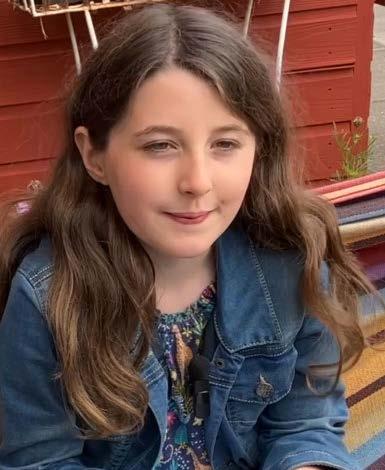
In 2022-2023, thanks to the incredible kindness and generosity of our supporters and partners, we have managed to raise £2,368,463 of unrestricted funding and £271,600 in restricted funding. With your support, we are able to work responsively, with the people who most need our help. Our most sincere thank you for your ongoing support
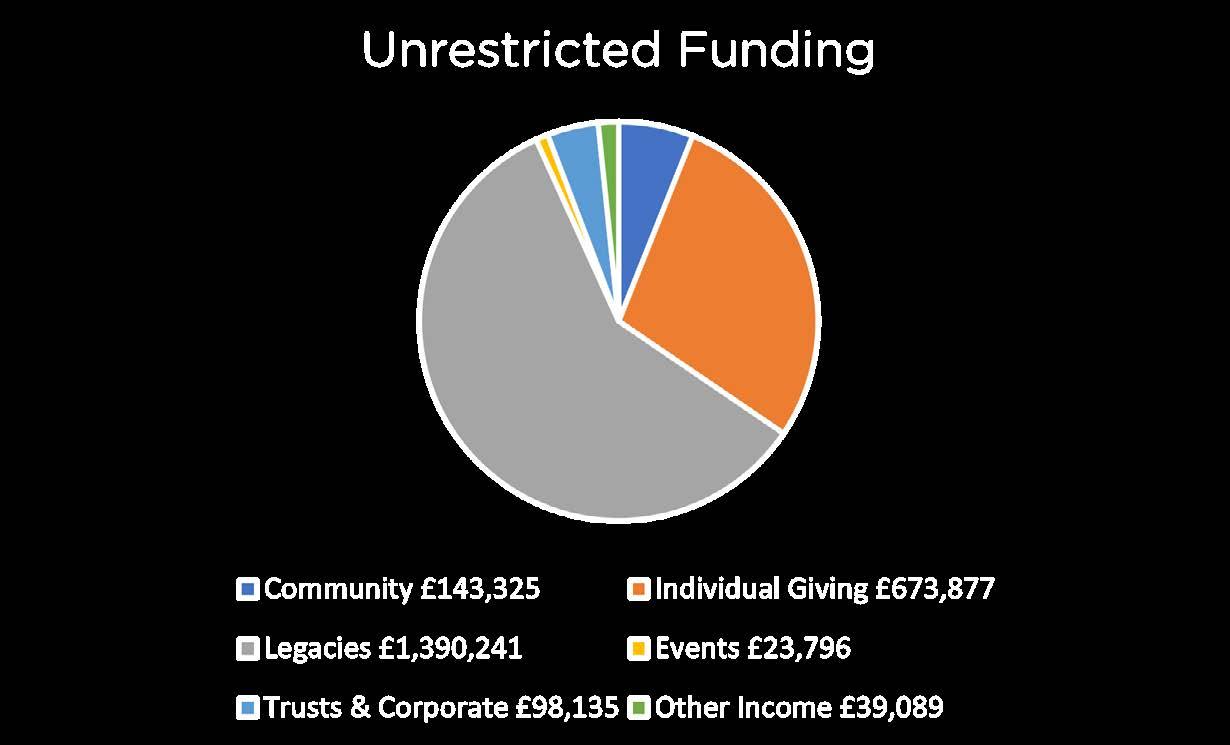
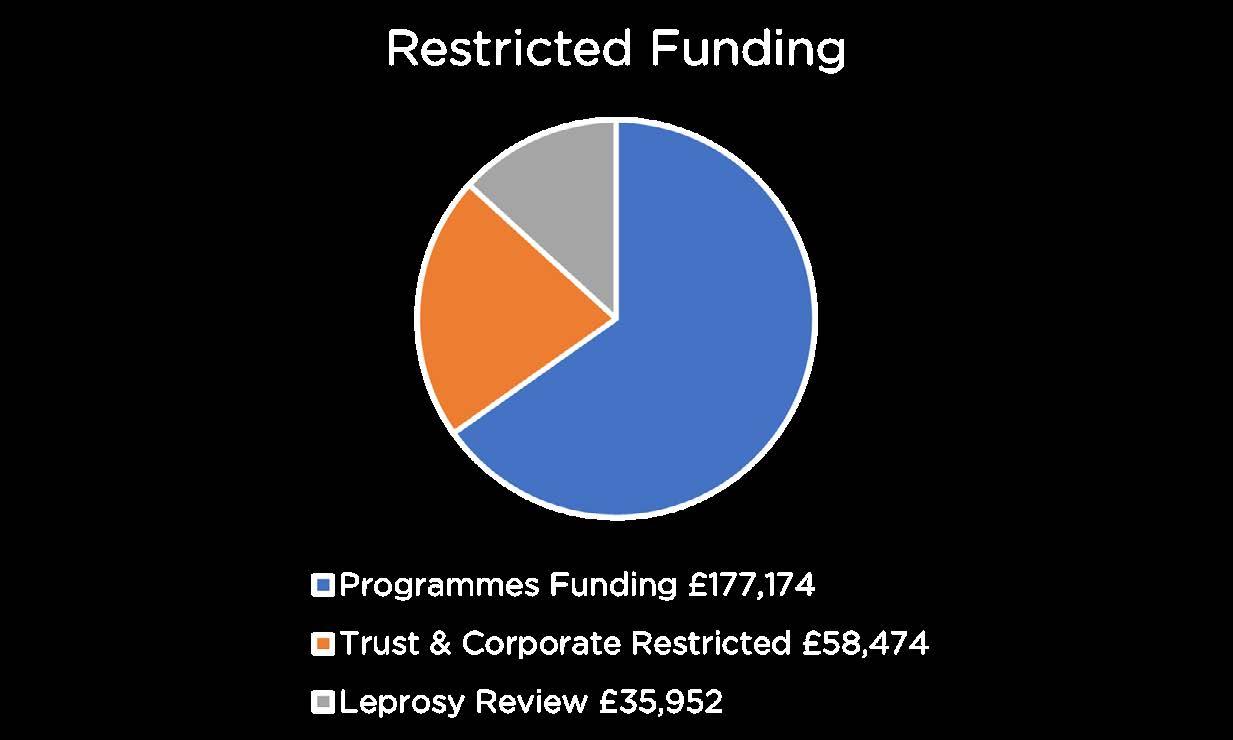
Last year, Lepra was able to claim over £93,517 in Gift Aid at no extra cost to our generous supporters.
This amount can have a significant impact on our life-changing work, so please consider signing a Gift Aid declaration today so that your donations can reach even further.
What is Gift Aid and am I eligible? The Gift Aid scheme allows charities to claim extra money from HMRC. You are eligible for Gift Aid if a donation is from your own funds, and you have paid the basic rate of tax, we can claim an extra £25p for every £1 you donate. The fantastic news is that once you have signed up to Gift Aid through the declaration form, Lepra is able to claim Gift Aid on your future donations, and donations from the previous 4 years

How do I sign up for Gift Aid? You can complete our online form at www.lepra.org.uk/get-involved/ donate/a-guide-to-gift-aid, or alternatively, you can call us on 01206 216 700. The declaration form confirms that you are a UK taxpayer, and that your charitable donations to us are not greater than 4 times what you have paid in tax in that tax year.
It is important to tell us if you stop paying tax or if you change your address. For more information on this, including if you are a higher rate tax payer, or if have any other questions, please get in touch with us by emailing donor support@lepra.org.uk or call us on 01206 216 700
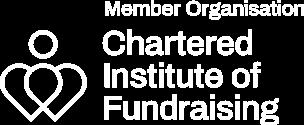
We are happy to help. Once again, on behalf of everyone we work with – thank you for your invaluable support. Together, we will beat leprosy
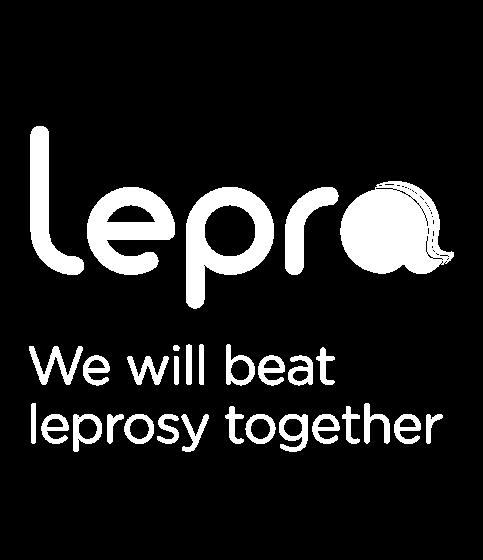
Lepra, 28 Middleborough, Colchester, Essex, CO1 1TG 01206 216 700 - www.lepra.org.uk - lepra@lepra.org.uk

Registered charity number: 00213251 (England and Wales) SCO39715 (Scotland)


GiftAid is one of the simplest and most effective ways to donate more to charity.
Fundraising is an essential part of our work and determines the impact we are able to make on some of the world’s most vulnerable people.